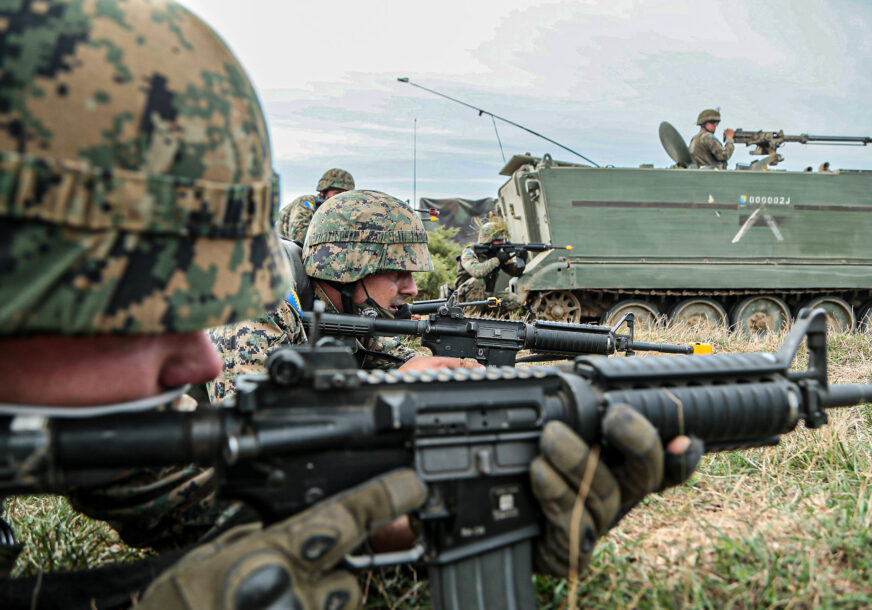Written by: Delvin Kovač/Bosnainfo.ba
This was stated in his author's text for Bosnainfo, titled "Peace Missions in BiH", senior expert associate at the Institute for Research of Crimes against Humanity and International Law of the University of Sarajevo, M.Sc. Almir Grabovica.
In an extensive analysis, which you can read below, Grabovica, who defended his master's thesis at the Faculty of Political Sciences (FPN) in Sarajevo in 2014 on the topic "NATO in the peace operation in Bosnia and Herzegovina since 1996", analyzes in detail the war and the post-war role of NATO in preserving peace in Bosnia and Herzegovina.
Aggression and weakening of the Bosnian state
Although it became an international actor as a sovereign and independent state, Bosnia and Herzegovina, a signatory of the Charter of the United Nations, failed to provide its citizens with much-needed security due to aggression against its sovereignty and territorial integrity by neighboring countries.
The aggression and weakening of the Bosnian state was the reason for engaging international forces in this area. Nevertheless, the general and individual interests of countries directly interested in the future of Bosnia and Herzegovina are involved in this type of intervention.
This was also contributed by the fact that the Dayton Peace Agreement brought together so many participants with larger or smaller tasks, that it actually represents a unique example in the recent history of international relations and of course the international community in its elementary definition.
The peace mission that continued in Bosnia and Herzegovina after 1996 illustrates the complexity of the international community's relationship with Bosnia and Herzegovina, but it also opens up various questions regarding the future of the country and the importance of joining the NATO alliance, and ultimately, the European Union.
Various questions and dilemmas arise, such as: Where and how to proceed? What is the perspective of the state and people of Bosnia and Herzegovina? What are the goals and interests of the international community? What is the saving formula for achieving permanent sovereignty, security and stability in Bosnia and Herzegovina?
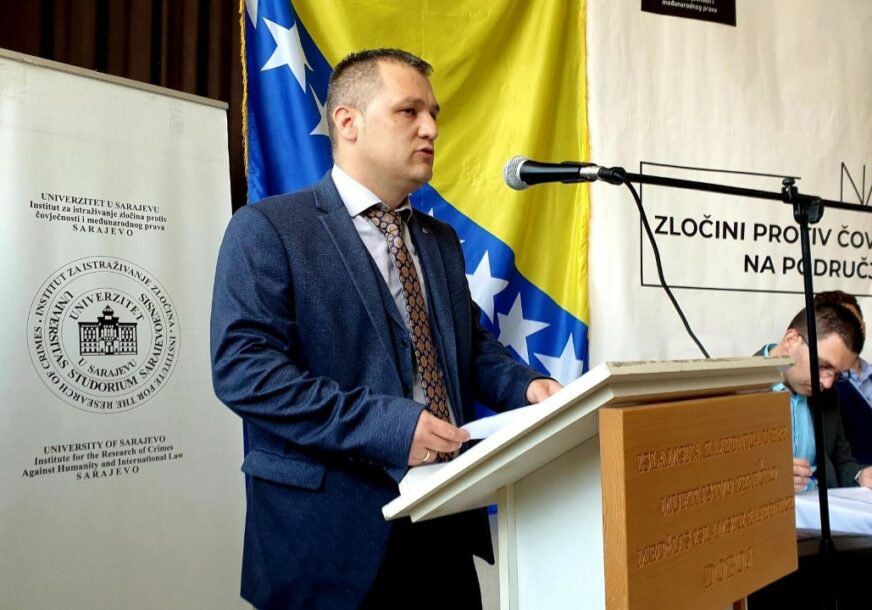
From the perspective of the post-war situation, which is characterized by the involvement of major powers, it is very difficult to talk about the positive and negative impacts of the peace missions that took place on the soil of Bosnia and Herzegovina.
In the period between 1992-1995. , the NATO alliance became a symbol of unsuccessful international responses to the wars in the Balkans, and primarily to the war in Bosnia and Herzegovina, by conducting various peacekeeping missions. These are peacekeeping operations that are also the longest peacekeeping missions in the history of NATO and the EU.
From this it can be concluded that with the overall engagement of military forces in terms of establishing and maintaining peace and security in Bosnia and Herzegovina: "NATO has not completed any mission quite successfully so far".
The mission in the Balkans implies the Alliance's effort "to take certain steps characteristic of the new security environment", and ultimately "the conflicts in the Balkans presented a challenge to the traditional concept of defense", since they are outside the traditional interpretations of self-defense and Article 5 of the North Atlantic Treaty.
In peace support operations in Bosnia and Herzegovina, the NATO alliance used the concept of "crisis management".
The international community failed to stop the mass crimes committed against Bosniaks, including genocide in "safe zones".
Skepticism towards the UN
That a new post-war situation was created, filled with tolerance and respect without national intolerance between the citizens of Bosnia and Herzegovina, is not. That our country was always and at all costs in the foreground when it was necessary to prevent bloodshed and stop the suffering of innocent civilians, is also not true.
It used to seem that our country was just a fertile ground for testing the strength of Europe and proving its power in the Balkans, with the help of which the European Union first solved its shortcomings, and only then the problems of Bosnia and Herzegovina and the Balkan region as a whole. This is all about the "politics of the great powers".
What is undoubted is that, after the engagement in Bosnia and Herzegovina, there are certain characteristics that have changed in the functioning and view of the NATO alliance.
Some will say that the new NATO was formed with the task of supporting Bosnia's unification in broad international cooperation, and that the new NATO is on its way to becoming a natural and generally accepted point of military, security and peace aspirations in Europe.
It seems that the UN still bears the scars it acquired during those years, as mentioned by Carl Bildt in his book "Task Peace": "Much of the skepticism towards the UN, which exists especially in the American debate, is based on a very critical attitude according to what the UN did - or did not do - in Bosnia in those years".
In April 1993, NATO forces decided for the first time to support the implementation of resolutions 816 (Operation Sky Monitor) and 836 (Operation Deny Flight). Then NATO offered its air forces in the event of an attack on UNPROFOR, but any use of NATO air forces in the bombing of certain areas had to be approved by both the UN and NATO commanders (double key principle).
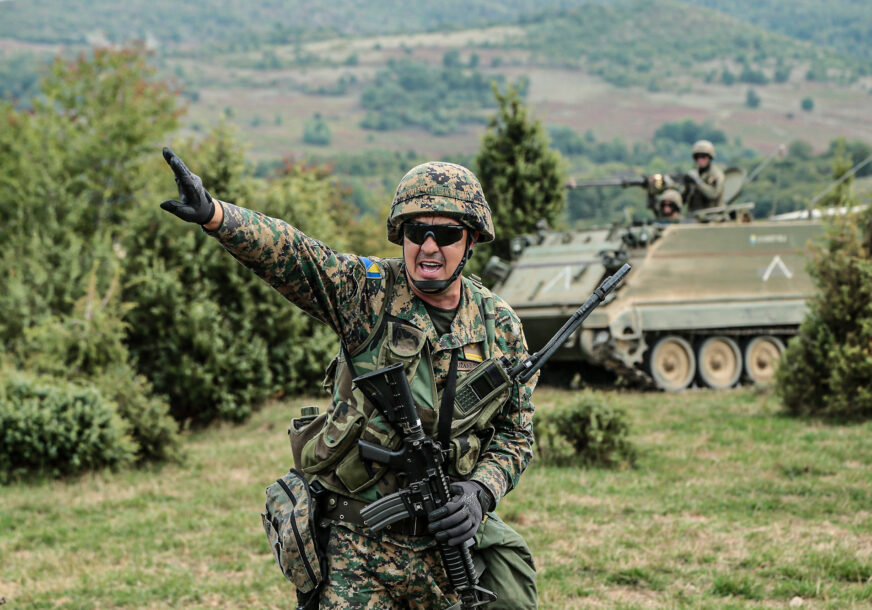
However, one NATO official noted: "In our cooperation with the United Nations, we have violated the military's golden rule about the need for a command structure...
Depending on how long they will cooperate, there will be confusion in the measures which, for example, may be based on different interpretations of the text (of Security Council Resolutions)".
Two days after a mortar shell was fired at the Sarajevo market "Markale" (August 28, 1995) from Serbian positions, in which 43 people were killed, the operation "Deliberate Force" began.
Airstrikes by NATO forces were aimed at well-fortified positions of Serbian forces. The operation lasted from August 30 to September 14, 1995. It was interrupted only a day after the beginning of the bombing, due to negotiations that were not successful.
NATO resumed bombing on September 5 and stopped on September 14, after the Serbian side agreed to the withdrawal of heavy weapons around Sarajevo and the opening of the airport.
An air attack by NATO forces, and the second series of defeats of the Serbian army on the battlefield, led to the cessation of fighting and the subsequent signing of the General Framework Agreement for Peace in Bosnia and Herzegovina (the Dayton Peace Agreement), which ended the war in Bosnia and Herzegovina.
It is evident that the air attack by NATO forces in Bosnia and Herzegovina was successful, since it led to the cessation of hostilities and the achievement of the Dayton Peace Agreement, which ended the war.
However, the activities of the UN in Bosnia and Herzegovina from 1991 to 1995 were not entirely successful. By the time the great powers agreed and carried out a military intervention that ended the war, it was too late for the approximately 100,000 dead in Bosnia and Herzegovina.
The decisions that NATO made in response to the events in Bosnia and Herzegovina helped in the evolution of the Alliance and the development of its capabilities.
The crisis in Bosnia and Herzegovina enabled NATO to cooperate closely with the United Nations and engage in supporting the implementation of the peace agreement, making NATO an ideal partner for the failing UN mission in Bosnia and Herzegovina.
Negotiation is the only solution
With its instrument of force, NATO did not achieve complete peace and security, but, siding with one side and helping one side, led to a balance and a situation in which negotiations were the only solution.
The peacekeeping missions did not happen on time and mostly failed to respond to the challenges posed in Bosnia and Herzegovina, which has always been a fertile ground for testing, strengthening and revitalizing the forces of the great powers.
Nevertheless, they led to the Dayton Agreement, the end of the war and the establishment of a "shaky" peace. If the losses could have been greater accompanied by humanitarian crises, they are, but it is still paradoxical to talk about it.
How to move on and trust those who did not help much earlier in order to avoid huge victims in all of Bosnia and Herzegovina? How to trust those who stood confused not knowing what to do and how to proceed, who had so many failed peacekeeping missions?
Do NATO and the EU really have positive intentions towards our country or are they just atoning for sins that were not prevented in the past, but could have been? Do they return to the scene of the crime, trying to prove that their missions are crucial in solving wars and conflicts, stabilizing the situation, and that they are ready to deal with such challenges in other parts of the world?
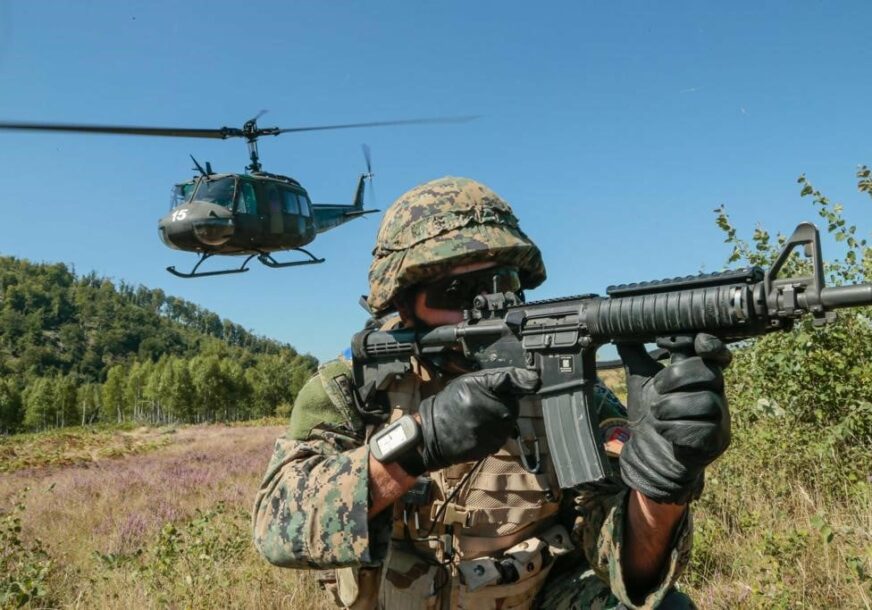
It is very difficult to answer such questions, but moving away from the Euro-Atlantic challenges would be even more difficult.
Prof. Ph.D. In a special way, Nerzuk Ćurak described the state of our country and the countries of the region under the umbrella of NATO, and thus of the European Union, in a particularly pessimistic way, assigning them the status of barbarians and calling them a third world in which people only have the right to a bare life "about which and for which the foreign governing factor decides, when it wants, how much it wants and what it wants", and in which Bosnia and Herzegovina is "doomed to new phases of ideological conflict and to new irrational circles: the "Devil's circle".
Prof. Ćurak also believes that this leading security-political alliance owes a kind of debt to Bosnia and Herzegovina and other countries in the region, even considering that "European security and defense as a supranational concept simply does not exist; it is a big illusion".
There is also the question of whether Bosnia and Herzegovina will ever become a "real" state, functioning according to European standards, in which human rights are respected and not "other" and "different" and whether it will ever become part of NATO, as NATO has been part of Bosnia and Herzegovina for a long time.
Failure in Bosnia and Herzegovina
However, it must not be forgotten that the failure in Bosnia and Herzegovina is a stain on the international community after the war. Criticism and war debates point to those negative consequences that the UN failed to prevent in time.
It even seems that the "new NATO" was formed in the task of supporting the work of unifying the state in broad international cooperation.
Europe must prove that by solving key issues in the Balkans, it is capable of dealing with problems in other parts of the world as well.
Bosnia and Herzegovina should still look for a better tomorrow under the umbrella of the NATO alliance, and then the EU. It is a relatively small country that, together with the NATO alliance and the EU, must provide its suffering people with the security they desperately need.
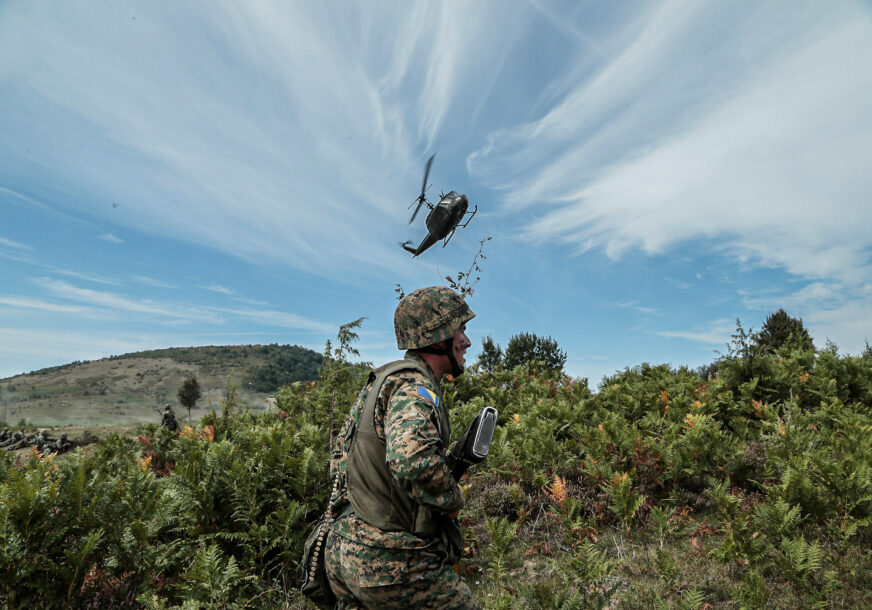
Looking from today's perspective, the mission of the NATO alliance in Bosnia and Herzegovina is based on partnership and cooperation, as well as a number of other tasks to support peace and security.
After all, the mission of the NATO alliance in Bosnia and Herzegovina in this sense has certain powers and responsibilities arising from the General Framework Agreement for Peace in Bosnia and Herzegovina (Dayton Agreement). In particular, this refers to the preservation of the integrity and cohesion of the armed forces of Bosnia and Herzegovina.
One of the key goals of Bosnia and Herzegovina's foreign policy, especially in today's context of disturbed geopolitical relations and the Russian Federation's invasion of Ukraine, is and should be the country's membership in the NATO alliance. Bosnia and Herzegovina committed itself to this in Article 84 of the Law on the Defense of Bosnia and Herzegovina from 2005. This, at the same time, should become the response of the authorities of the state of Bosnia and Herzegovina to contemporary geopolitical trends.
